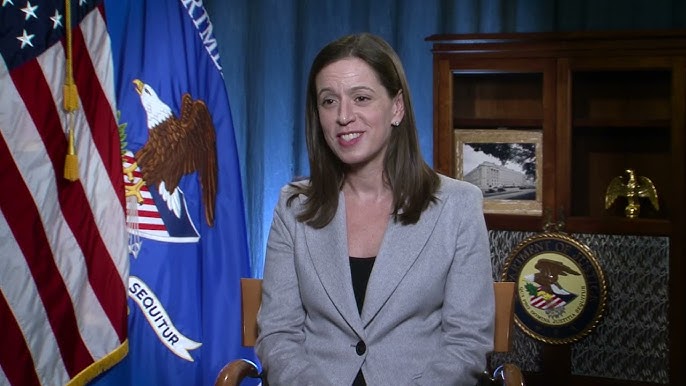DOJ Tried to Silence Liz Oyer Over Mel Gibson Gun Rights.
A former Department of Justice official says she was pushed out of her role after refusing to support restoring Mel Gibson’s gun rights, and was nearly confronted by armed federal agents at her home just days before testifying before Congress.
Liz Oyer, who served as the DOJ’s pardon attorney, says she came under pressure from Trump-era officials to recommend Gibson, who lost his gun rights after a domestic violence conviction for reinstatement. When she pushed back, she says her job was suddenly gone.
“I didn’t think it was my call to make, especially given the nature of the conviction,” Oyer said during testimony on Capitol Hill this week. “I told leadership it should be their decision. Not long after, I was fired.”
But the story didn’t end there.
Just before a scheduled appearance at a congressional hearing on political interference in the Justice Department, Oyer learned the department was preparing to send U.S. Marshals to her home with a letter urging her not to speak. The timing? Late at night. And her teenage child would have been the one to answer the door.
“I was in the car with my husband and my parents when I got the message,” she told lawmakers. “Marshals were on their way. My child was home alone.”
Oyer was able to confirm receipt of the letter by email, which called off the in-person delivery. But the moment left her shaken and she believes the move was meant to intimidate her.
The letter, sent by DOJ official Kendra Wharton, warned Oyer not to share details about internal discussions, especially anything related to restoring firearm rights. It cited legal concerns around executive privilege and attorney confidentiality.
Liz Oyer's attorney, Michael Bromwich, called the warning “completely inappropriate” and accused the department of using law enforcement as a scare tactic. He also noted the letter made no mention of the legal protections Oyer has as a whistleblower.
“Sending armed marshals to the home of a former DOJ attorney, who has done nothing wrong, just to deliver a letter that’s not normal. That’s intimidation,” Bromwich said in a written response.
Oyer eventually testified as planned at the hearing, which focused on alleged political pressure inside the DOJ during the Trump administration. She appeared alongside other former Justice officials, speaking under the banner: “Restoring Accountability: Exposing Trump’s Attacks on the Rule of Law.”
During her appearance, she explained her refusal to support restoring Gibson’s gun rights and why she believes it cost her the job.
Gibson, best known for his roles in Braveheart and The Passion of the Christ, was sentenced to probation in 2011 following a domestic violence case. He has since become a visible supporter of Donald Trump, which Oyer says added a political dimension to the decision.
Lawmakers leading the hearing, including Rep. Jamie Raskin and Sen. Adam Schiff, didn’t hold back in their criticism. Schiff called the DOJ’s approach an attempt to silence a voice they didn’t want heard. Raskin said it felt like something “straight out of a mob movie.” Liz Oyer stood her ground.
“The letter was meant to scare me off. But I’m not going to stay quiet about what I saw or what’s still happening,” Liz Oyer said.
What Most People Don’t Know About This Story
-
Mel Gibson lost his gun rights after a 2011 domestic violence conviction in California. Under federal law, even a misdemeanor domestic violence conviction can permanently bar someone from owning firearms.
-
Restoring federal gun rights is a rare process. It typically requires a presidential pardon, clemency, or successful court challenge and is almost never granted for domestic violence cases.
-
Liz Oyer was appointed as the U.S. Pardon Attorney in 2022 under President Biden. The Office of the Pardon Attorney plays a key role in reviewing and recommending clemency cases but those recommendations are not always followed by the White House.
-
DOJ whistleblowers are protected under multiple federal statutes, including the Whistleblower Protection Act and Inspector General Act. It's illegal to retaliate against federal employees for exposing misconduct or abuse of authority.
-
Using U.S. Marshals for non-criminal delivery - especially to a former DOJ employee's home at night is extremely uncommon and has raised questions about possible abuse of power or intimidation tactics.
More Articles from Lawyer Monthly
-
Supreme Court Uses 1798 Wartime Law to Justify Deportations
A centuries-old law resurfaces in a modern deportation case with sweeping implications. -
Mielle Organics Faces Lawsuit Over ‘Natural’ and ‘Made in USA’ Claims
Consumers challenge beauty brand for allegedly misleading product labels. -
Senator Mullin Clashes with Journalist Over Trade Policy Remarks
A heated exchange raises questions about free speech and political transparency. -
Jarecki Dropped from Jane Doe 11 Lawsuit
A major update in a high-profile case involving serious allegations and legal twists. -
Inside the New Counterintelligence Law Shaping 2025
National security meets legal reform in a fast-changing digital landscape.





















